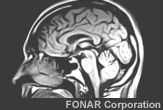Children with Brain Injuries Put on Ice for Better Recovery

Tests on children with traumatic brain injuries found that cooling their bodies led to better recoveries.
In the trial, scientists chilled the patients to as low as 89.6 degrees Fahrenheit (32 Celsius). Normal body temperature is 98.6 Fahrenheit (37 Celsius).
The positive effect of this induced hypothermia is thought to result from slowing the body's metabolic processes, which otherwise exacerbate an injury. It can also help control brain swelling, the researchers say.
Previous studies on adults showed benefits, too.
"There is no one thing that can effectively treat all cases of traumatic brain injury, but our hope is that with the cooling from hypothermia, we may block or slow down the brain's deleterious biochemical mechanisms following an injury and also be able to develop other more effective treatments," said the study's leader, David Adelson, director of the Pediatric Neurotrauma Center at Children's Hospital of Pittsburgh.
Traumatic brain injury is the leading cause of child death in the United States, Adelson said.
Hypothermia can be induced by covering the body with cool blankets and applying ice packs to the groin and armpits.
Get the world’s most fascinating discoveries delivered straight to your inbox.
The study involved 75 patients. It was funded by the National Institutes of Health and is detailed in the April issue of the journal Neurosurgery.
A 1999 study at the University of Pittsburgh found induced hypothermia improved recovery rates for adults with severe brain trauma. Research at the same facility in 2003 showed that chilling adults improves survival after cardiac arrest.
Related Stories

